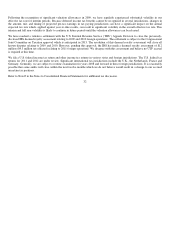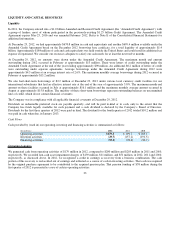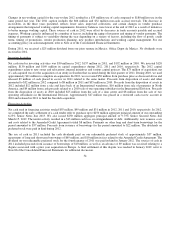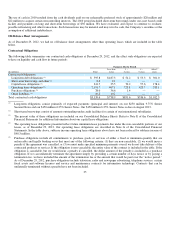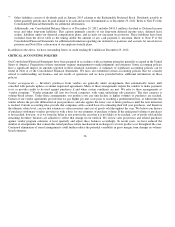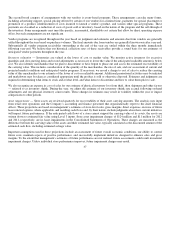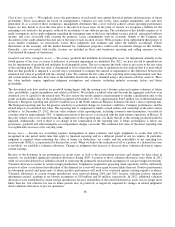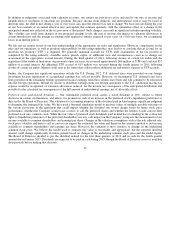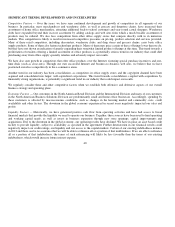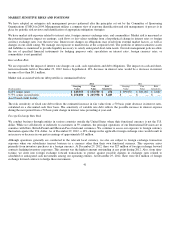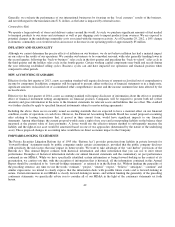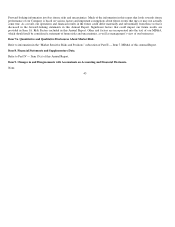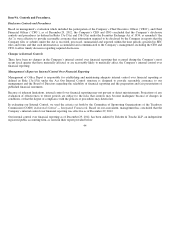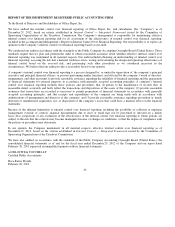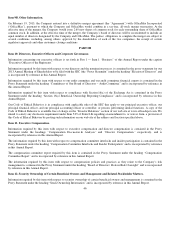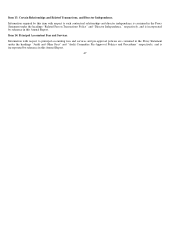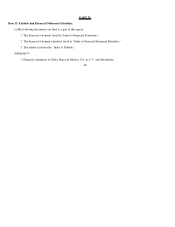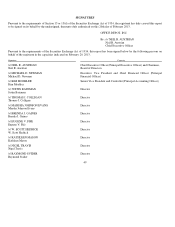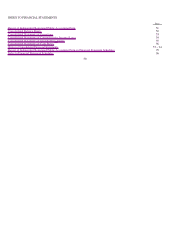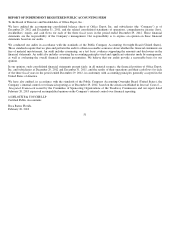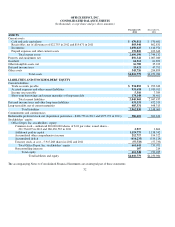Office Depot 2012 Annual Report Download - page 44
Download and view the complete annual report
Please find page 44 of the 2012 Office Depot annual report below. You can navigate through the pages in the report by either clicking on the pages listed below, or by using the keyword search tool below to find specific information within the annual report.
Generally, we evaluate the performance of our international businesses by focusing on the “local currency” results of the business,
and not with regard to the translation into U.S. dollars, as the latter is impacted by external factors.
Commodities Risk
We operate a large network of stores and delivery centers around the world. As such, we purchase significant amounts of fuel needed
to transport products to our stores and customers as well as pay shipping costs to import products from overseas. We are exposed to
potential changes in the underlying commodity costs associated with this transport activity. As of December 29, 2012, a 10% change
in domestic commodity costs would result in an increase or decrease in our operating profit of approximately $5 million.
INFLATION AND SEASONALITY
Although we cannot determine the precise effects of inflation on our business, we do not believe inflation has had a material impact
on our sales or the results of our operations. We consider our business to be somewhat seasonal, with sales generally trending lower in
the second quarter, following the “back-to-business” sales cycle in the first quarter and preceding the “back-to-school” sales cycle in
the third quarter and the holiday sales cycle in the fourth quarter. Certain working capital components may build and recede during
the year reflecting established selling cycles. Business cycles can and have impacted our operations and financial position when
compared to other periods.
NEW ACCOUNTING STANDARDS
Effective for the first quarter of 2013, a new accounting standard will require disclosure of amounts reclassified out of comprehensive
income by component. In addition, companies will be required to present, either on the face of financial statements or in a single note,
significant amounts reclassified out of accumulated other comprehensive income and the income statement line item affected by the
reclassification.
Effective for the first quarter of 2014, a new accounting standard will require disclosure of information about the effect or potential
effect of financial instrument netting arrangements on financial position. Companies will be required to present both net (offset
amounts) and gross information in the notes to the financial statements for relevant assets and liabilities that are offset. This standard
was further clarified to apply to specified financial instruments subject to master netting agreements.
Including the above, there are no recently issued accounting standards that are expected to have a material effect on our financial
condition, results of operations or cash flows. However, the Financial Accounting Standards Board has issued proposed accounting
rules relating to leasing transactions that, if passed in their current form, would have significant impacts to our financial
statements. Among other things, the current proposal would create a right of use asset and corresponding liability on the balance sheet
measured at the present value of lease payments. A lessee would use the effective-interest method to subsequently measure the
liability and the right-of-use asset would be amortized based on one of two approaches (determined by the nature of the underlying
asset). These proposed changes in accounting rules would have no direct economic impact to the Company.
FORWARD-LOOKING STATEMENTS
The Private Securities Litigation Reform Act of 1995 (the “Reform Act”) provides protection from liability in private lawsuits fo
r
“forward-looking” statements made by public companies under certain circumstances, provided that the public company discloses
with specificity the risk factors that may impact its future results. We want to take advantage of the “safe harbor” provisions of the
Reform Act. This Annual Report contains both historical information and other information that you can use to infer future
performance. Examples of historical information include our annual financial statements and the commentary on past performance
contained in our MD&A. While we have specifically identified certain information as being forward-looking in the context of its
presentation, we caution you that, with the exception of information that is historical, all the information contained in this Annual
Report should be considered to be “forward-looking statements” as referred to in the Reform Act. Without limiting the generality o
f
the preceding sentence, any time we use the words “estimate,” “project,” “intend,” “expect,” “believe,” “anticipate,” “continue” and
similar expressions, we intend to clearly express that the information deals with possible future events and is forward-looking in
nature. Certain information in our MD&A is clearly forward-looking in nature, and without limiting the generality of the preceding
cautionary statements, we specifically advise you to consider all of our MD&A in the light of the cautionary statements set forth
herein.
42


